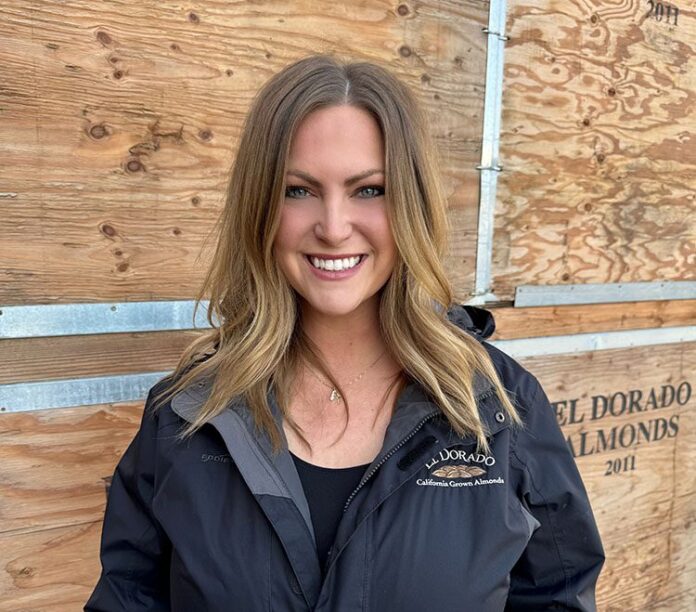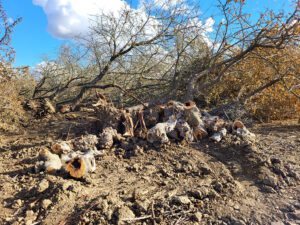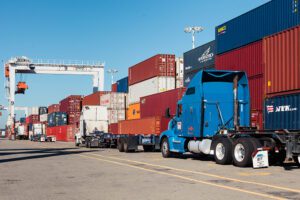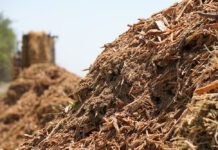
Processing almonds and getting them to customers is a hard enough job. But add in ramped-up regulations and arduous permitting processes, and the work becomes even tougher.
Amy Sihto is deep in the thick of it all. As president of El Dorado Almonds, she oversees a company that annually handles 20 million to 40 million pounds of the nut at its plant in Madera, Calif. The 10 growing entities that own the company look to Sihto to make sure the 15-year-old operation successfully prepares their almonds for shipment to both export and domestic markets. That means sampling, fumigating, processing, storing, packing and shipping through the Port of Oakland. It means assessing market dynamics and developing pricing plans for each grower.
And, increasingly, it means focusing on the state and federal regulations that wield a mighty hand over agricultural operations in California.
Here, Sihto discusses regulatory burdens that weigh heavily on the ag industry and what’s needed for relief.
Q. How are your growers responding to the Sustainable Groundwater Management Act (SGMA)?
They have been living and breathing it since it was first proposed. Anyone who grows any kind of permanent crop is making plans for their farming operation 15 to 20 years out. It’s hard to make decisions for the next 20 years when you don’t know what the next year is going to bring. People really didn’t know what SGMA meant at first. Now we’re in this kind of space where we know, and growers have had to take out thousands and thousands of acres of their permanent plantings. That’s why El Dorado’s volume has fluctuated quite a bit. It hit us in a major way two years ago. Last year, we processed only 22 million pounds, the least amount since I started at El Dorado in 2012. Now we’re kind of ramping back up as some of the younger plantings come into production. But it’s still less than what it would have been.
The biggest thing with SGMA is that we’re seeing the California agricultural landscape change significantly. The relatively quick shift is making it difficult for our farmers to adapt. It’s pretty crazy to me that our policymakers are not looking at the middle of this state that produces so much. We’re the breadbasket of the world with our unique microclimates and fertile soils, yet policymakers aren’t asking, “How can we make it easier for our people to grow our own safe food supply?” Fresno County alone grows over 300 food crops, much of which can’t be grown in other regions or areas of the world. With some of California’s policies, it’s like they’re wanting to force us to have to import our food. That, to me, is just absurd. We’re fighting the good fight, but SGMA is a big topic of concern going forward. The bottom line is that it takes water to grow food, and, as such, allocation to our farmers should be a top priority in our state.

Q. With that kind of water uncertainty, how is El Dorado preparing for the future?
Automation. What efficiencies can we put in at the packing level so we can survive? With volume fluctuation, we have to plan for the really difficult years when we have a lot fewer almonds to process. That means automating in order to cut other costs associated with labor, sadly. With the amazing team we do have, we work to maximize efficiencies within our processes and try to minimize error.
Q. When it comes to the trucking side of your business, what are your thoughts on California Air Resources Board (CARB) rules?
As CARB moves toward zero emissions goals in California, lawmakers and leaders in support of these changes for electric- or hydrogen-powered trucks and forklifts haven’t taken into consideration the dire toll it will have on California agriculture.
We rely on truck transit to and from the Port of Oakland. Returning a full container to the Port of Oakland, the truck weight is approximately 80,000 pounds. The truckers have to sit in lines to in-gate containers at the port for sometimes up to five to six hours, depending on the season. This is after a three- to four-hour transit time from our facility. We are already up against scrupulous deadlines with the vessel schedules at the port, so timing is an integral part of exporting agricultural commodities. CARB regulations with electric fleets will have dire consequences on the ability to transfer such heavy loads. They’ll also affect the time and grid strain to charge the fleets that are making these round trips in an already power-strained state. They will also impact the timing of turning in our containers on time to avoid vessel rolls and hefty fees back to the packinghouses as a result.
Most trucking outfits will not have the ability to financially swap out fleets to comply with these regulations. Sadly, I’m already hearing stories of family-owned businesses that are preparing to close their doors.

Q. What’s the solution?
California’s governor and lawmakers need to consider California agriculture and how CARB’s “zero emissions” policies will take a toll on this state and on the beautiful bounty of food that only we can uniquely supply. There needs to be some type of exception and compromise to these regulations for the agricultural industry.
Sometimes in California, the policymakers, the lawmakers and the governor are very focused on what’s going on in Northern California and Southern California. I get that big tech and fashion and entertainment are a huge part of California. But we’re often forgotten about here in the middle. We are such an important and vital aspect of our state and nation and the world’s wellbeing when it comes to food. They need to wake up and start having these hard conversations with us here in the middle.

Q. And if those solutions aren’t made?
At some point, farmers are going to get tired of fighting the fight. They’re not going to want to do it anymore. I’m already starting to see generations of farmers whose kids don’t want to continue farming. They see the struggles their parents are going through, and they don’t want to keep up the family farm. What will happen is big corporations will come in and buy out all our family farms. It’s just going to become some big corporate industry, which is what so many people were against from the start. You’re pushing out the family farmer. Then ultimately it comes down to profits. The minute it’s not profitable anymore, guess what? There goes our farms and our food supply. I know that sounds really dramatic, but that’s the way things are headed. I have these discussions all the time with my growers. It breaks my heart.

Q. What’s your message to legislators and regulators regarding agricultural regulations?
Hear us out. Take into consideration that we are a huge part of this economy, of this state, of our overall well-being. We have to compromise. We cannot have these policies that are so against agriculture because they’re going to drive ag out of California. I love this industry. I love being a part of it. We’re very blessed to be able to live in a state where we have the microclimates, the soils, the ability to farm what we farm. We’re very spoiled with a lot of our fresh foods that we do have here. I just want to work to keep it that way.















